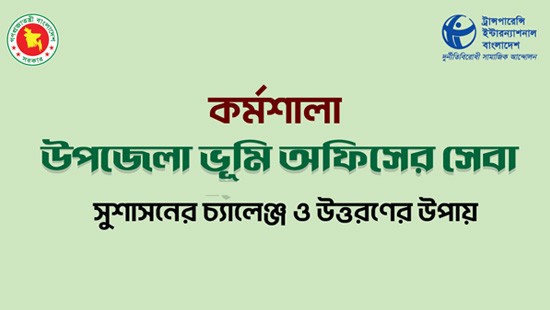Published: 05 October 2025
An effective and independent Information Commission must be formed without delay to ensure the right to information and empower citizens. The appointment of commissioners should be based on qualifications and free from conflicts of interest, said experts at a seminar organized by the RTI Forum, where Transparency International Bangladesh (TIB) is one of the key stakeholders, on 28 September 2025.
Marking the International Day for Universal Access to Information, the seminar titled “Right to Information Act, 2009: Contextual Analysis” was organized in alignment with the international theme, “Ensuring Access to Environmental Information in the Digital Age.” Distinguished civil society members discussed the current state of the Right to Information in Bangladesh. The seminar addressed issues such as the need to amend the RTI Act, the ineffectiveness of the Information Commission, the prevailing culture of secrecy, and existing challenges in accessing information. A keynote paper was presented by Ruhi Naz, Deputy Director of Research Initiative Bangladesh.
As a panelist, Dr. Iftekharuzzaman stated: "For more than a year, the commissioners' positions on two important commissions—the Information Commission and the Human Rights Commission—have remained vacant. This could be the first time this has happened. The interim government has done a lot of good things, but failing to fill these jobs sets a bad example. He also noted that Bangladesh ranks 27th out of 140 countries, a moderately good position, but the system has limitations and needs amendment. Clear standards for "national interest" are required, and Section 7 of the Act excludes certain institutions. He emphasized that both the private sector and political parties should be brought under the RTI Act, as public-sector corruption often involves private entities, and transparency in political parties is essential.
Agreeing with Dr. Iftekharuzzaman, Badiul Alam Majumder, head of the Election Reform Commission, emphasized that political parties must be brought under the Act to ensure transparency. He noted that without transparency and internal democracy in political parties, establishing democracy in the country would remain an unattainable goal. He added that genuine people’s participation in governance is essential for accountability, and the RTI Act provides the pathway to achieve it.
Susan Vize, Head of Office and Country Representative of UNESCO Dhaka, stressed the importance of having clear criteria for rejecting RTI applications. She further proposed the creation of a citizen forum to review the Commission’s decisions, noting that most people cannot afford to take their cases to the High Court.
Presiding over the seminar, Shaheen Anam, Executive Director of Manusher Jonno Foundation, described the state of the right to information as fragile. She observed that the Commission has remained ineffective and virtually absent for the past year and a half. Highlighting the lack of accountability in the ousted government, she said people now expect a government that will uphold citizens’ constitutional, fundamental, and information rights. She stressed that it is the responsibility of the interim government to establish the foundation for such a system.
Speaking as the chief guest, Mahmudul Hossain Khan, Secretary to the Chief Adviser’s Office, noted that many government offices do not comply with standard citizen charter formats, leaving them confusing for ordinary people. As a result, citizens often waste entire days going from office to office in search of information. He stressed the urgent need for reform and highlighted the importance of monitoring and research to track progress.
The Information Commission held a seminar that day, and TIB Executive Director Dr. Iftekharuzzaman was one of the main speakers. He warned that the commission shouldn't become a place for retired officials, as it has in the past. He also mentioned that the commission has been inactive for an unusually long time. The Adviser to the Ministry of Information and Broadcasting, Mahfuz Alam, attended the seminar as the chief guest and promised to make the commission functional as soon as possible.














